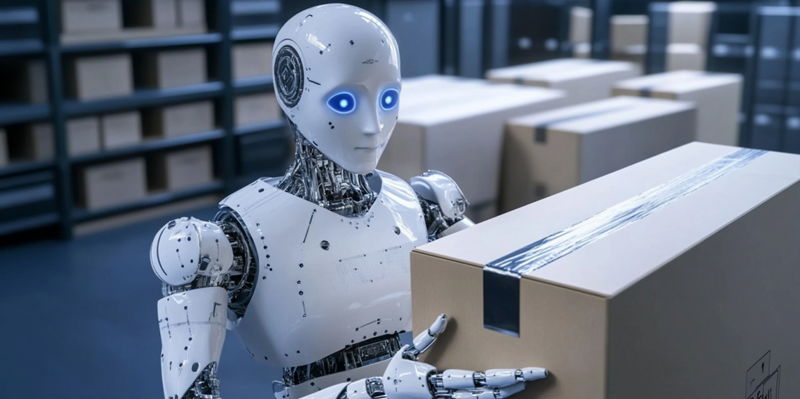Artificial intelligence (AI) is revolutionizing the way businesses handle supply chain management by introducing advanced technologies that improve efficiency, reduce errors, and enhance responsiveness. This article highlights four key trends that are shaping the future of the industry: hyper-automation, the evolution from predictive to prescriptive analytics, AI-powered sustainability, and the role of AI in strengthening supply chain risk management. These trends signal a profound shift in how companies operate, offering a glimpse into a future where supply chains are not only smarter but also more sustainable and resilient.
Hyper-Automation: Revolutionizing Supply Chains
Hyper-automation represents a game-changing trend that integrates AI, robotics, and machine learning to automate end-to-end supply chain processes. This intelligent, self-managing system enhances efficiency, reduces human error, and accelerates response times. By adopting hyper-automation, companies can achieve unprecedented levels of operational efficiency, allowing them to handle tasks that previously took days or even weeks in just a matter of minutes.
The implementation of AI-driven hyper-automation enables supply chains to operate with minimal human intervention, leading to faster decision-making and more accurate outcomes. For instance, autonomous robots can manage warehouse inventories, process shipments, and even predict product demand based on real-time data analysis. This not only streamlines operations but also reduces costs and minimizes the risk of errors, ultimately leading to higher customer satisfaction and stronger competitive positioning.
From Predictive to Prescriptive Analytics
The evolution from predictive to prescriptive analytics marks a significant advancement in supply chain management. While predictive analytics forecasts future demands and supply trends, prescriptive analytics goes a step further by recommending optimal actions to be taken in real time. This shift enables companies to adjust their operations promptly, improve decision-making processes, and enhance overall agility.
With AI’s ability to analyze vast amounts of data and provide actionable insights, businesses can now make informed decisions that anticipate and adapt to changing conditions. For example, prescriptive analytics can suggest the best shipping routes, recommend inventory levels, and identify potential bottlenecks before they become critical issues. This proactive approach ensures that supply chains remain flexible and responsive to dynamic market demands, ultimately leading to a more resilient and efficient operation.
AI-Powered Sustainability: Balancing Profit and Responsibility
As concerns about environmental impact continue to grow, the role of AI in promoting sustainability within supply chains becomes increasingly important. Future AI systems are expected to optimize energy usage, reduce waste, and monitor carbon footprints, thus helping companies balance profitability with environmental responsibility. By utilizing AI-driven tools, businesses can ensure compliance with environmental regulations while also improving their overall sustainability performance.
AI technology can accurately track and manage resources, helping companies reduce waste and minimize their carbon footprints. For instance, AI-powered algorithms can optimize logistics to minimize fuel consumption, while advanced sensors can monitor energy usage in real time, allowing for more efficient operations. Additionally, AI can help companies identify sustainable suppliers, reducing the environmental impact of their procurement processes and contributing to a greener supply chain.
The integration of AI into sustainability efforts also enables companies to maintain a competitive edge by anticipating and adapting to regulatory changes. By staying ahead of environmental regulations, businesses can avoid costly penalties and enhance their brand reputation as socially responsible organizations. This not only benefits the environment but also strengthens the trust and loyalty of customers, investors, and other stakeholders.
Strengthening Supply Chain Risk Management with AI
Artificial intelligence (AI) is transforming how businesses manage their supply chains by leveraging cutting-edge technologies that boost efficiency, minimize errors, and improve responsiveness. This shift is driven by four major trends reshaping the industry.
Hyper-automation involves integrating various AI technologies to automate every aspect of supply chain operations, leading to streamlined processes and reduced human intervention. The progression from predictive to prescriptive analytics is enabling companies to not only forecast outcomes but also recommend specific actions, making decision-making more proactive.
AI is playing a crucial role in driving sustainability efforts within supply chains. By optimizing resource use and reducing waste, AI helps businesses meet environmental goals. Lastly, AI enhances supply chain risk management by identifying potential disruptions and suggesting preventive measures, thus increasing overall resilience.
These trends represent a significant evolution in supply chain management, pointing towards a future where operations are more intelligent, sustainable, and robust.

